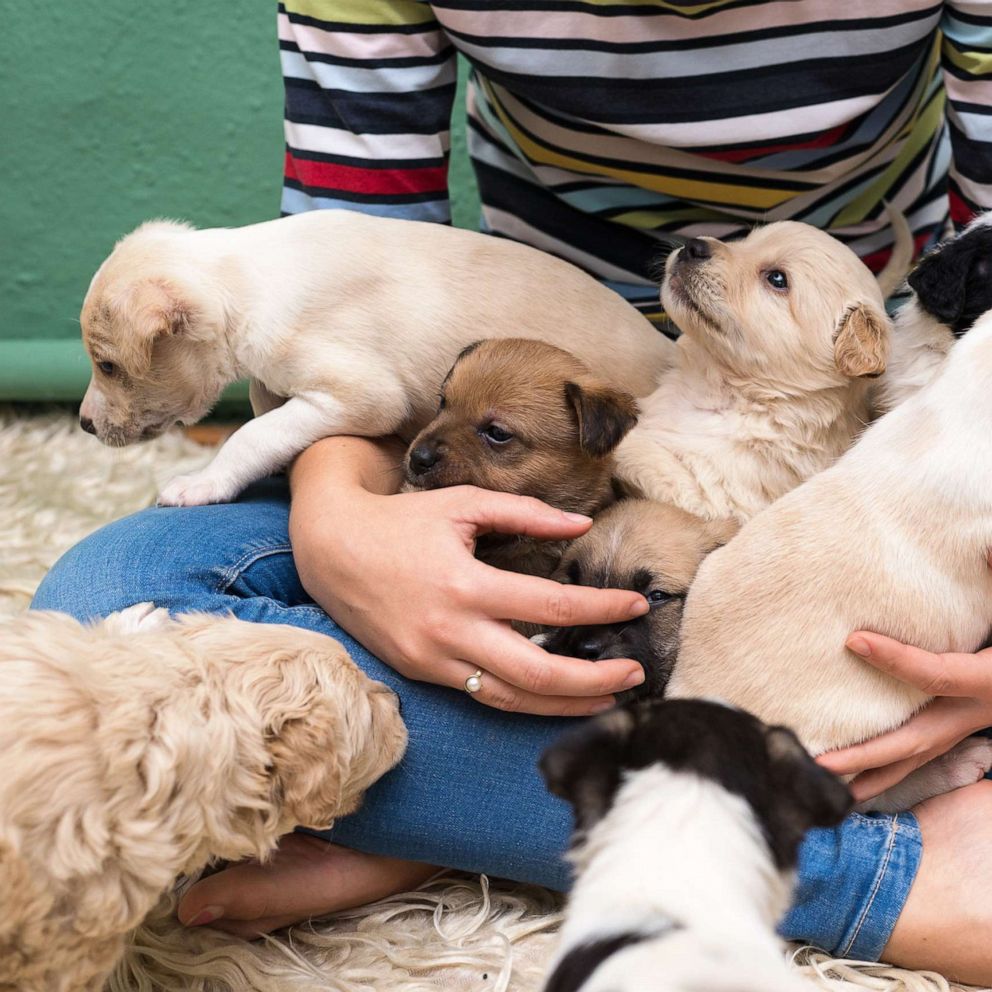Service dog alerts parents to daughter's medical emergency
Raelynn Boggs was asleep when her dog noticed her high blood sugar reading.
A Virginia family's service dog is being hailed as a hero for helping alert them to their daughter's medical emergency.
Mom of three Shannon Boggs and her husband were watching TV in their home last month when their dog, Spy, a trained diabetes service dog, came to alert them.
The dog took them to a bedroom where their daughter 9-year-old Raelynn, who has Type 1 diabetes, was sleeping, according a video Boggs shared on Instagram.

When Boggs and her husband checked their daughter's blood sugar using a blood sugar meeting, her level was at a dangerously high level of 338 mg/dL. A goal glucose range at bedtime for a person with diabetes is between 90 and 150 mg/dL, according to the Joslin Diabetes Center at Beth Israel Lahey Health in Boston.
"The nose ALWAYS knows! Even when it's sleeping," Boggs captioned the video she shared on Instagram. "This dog is such a blessing to our family! We truly can't be more thankful."

Diabetic alert dogs are trained to recognize the particular scent that a person experiencing hypoglycemia produces due to chemical changes in their body. They are also trained to alert the person with diabetes and can also be trained to retrieve juice or glucose tabs, get an emergency phone, or get help from another person in the house, according to CanDoCanines.org, an organization that works to match specially trained dogs with people with disabilities.
In Type 1 diabetes, a person's body no longer makes insulin, the hormone that helps blood sugar enter cells to then be used for energy. The buildup of blood sugar in the body caused by a lack of insulin can lead to serious, long-term complications including blindness, increased risk of nerve damage, kidney disease, cardiovascular disease and stroke.
In addition to taking insulin, people with Type 1 diabetes must measure their blood glucose levels multiple times a day, either through finger pricks or wearing a continuous glucose monitor, a sensor that sticks on the skin and, through a wire that sits under the skin, measures blood sugar levels continuously.
Boggs shared on Instagram that Raelynn wears a continuous glucose monitor, but on the night that Spy detected her high blood sugar level, she had just put on a new monitor that was still calibrating, meaning her blood sugar levels were not being checked at the moment.
Additionally, Boggs said Raelynn, who was diagnosed with Type 1 diabetes in 2022, was sick at the time with the flu. According to the Joslin Diabetes Center, an illness like the flu is one factor -- along with others like food, stress or not enough insulin -- that can cause high blood sugar.
High blood glucose, also known as hyperglycemia, is considered "high" when it is 160 mg/dl or above, according to the Joslin Diabetes Center.







